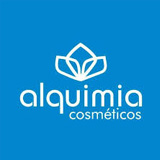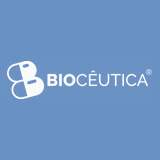As the years pass, age becomes more than just a number. It manifests in subtle changes in our body, particularly in our skin. Many of us desire youthful, radiant skin — an appearance often linked to vitality and health. One of the essential proteins contributing to skin firmness and elasticity is collagen. This article delves into collagen’s role in our skin health, the efficacy of collagen supplements, and how they can be a gateway to promoting beautiful, youthful skin from the inside out.
Understanding Collagen
Collagen is a structural protein that accounts for about 30% of the body’s protein content. It is found abundantly in connective tissues such as skin, bones, tendons, and ligaments. Within the skin, collagen works in tandem with elastin (which gives the skin its elasticity) to provide strength and firmness.
There are several types of collagen, with Type I being the most prevalent in the skin. As we age, our body produces less collagen, and this decline can lead to various skin issues, including sagging, fine lines, wrinkles, and dryness. This natural depletion tends to begin in our late 20s and accelerates as we enter our 30s and beyond.
The Role of Collagen in Skin Health
The benefits of collagen for skin health are numerous:
-
Enhanced Elasticity: Collagen helps to keep your skin elastic, allowing it to stretch and bounce back. Reduced collagen levels can lead to sagging skin and deeper wrinkles.
-
Improved Hydration: Collagen supports skin hydration, and maintaining hydration levels is crucial for achieving a plump, youthful appearance.
-
Wound Healing: Collagen plays a vital role in repairing skin damage. Increased collagen production can promote faster healing of cuts, scars, and other imperfections.
-
Protection Against Environmental Damage: Collagen contributes to the skin’s barrier function, protecting it from pollutants, UV rays, and other environmental aggressors that can cause premature aging.
- Reduced Appearance of Fine Lines and Wrinkles: Studies have shown that supplementation with collagen can help reduce wrinkles and improve skin texture, leading to a smoother complexion.
The Science Behind Collagen Supplements
There are two primary types of collagen supplements on the market today:
-
Hydrolyzed Collagen or Collagen Peptides: This form is broken down into smaller peptides, making it easier for the body to absorb. It is often derived from animal sources, such as cows (bovine collagen) or fish (marine collagen).
- Gelatin: This is cooked collagen, which is commonly used in cooking and baking. Gelatin has similar properties to hydrolyzed collagen but is less bioavailable.
Mechanism of Action
Collagen supplements can encourage the body to produce more collagen through a process known as collagen synthesis. When collagen is ingested, the hydrolyzed peptides are absorbed through the intestinal lining and into the bloodstream. Once in circulation, these peptides can signal fibroblasts — the cells in your skin responsible for producing collagen — to boost collagen synthesis.
Furthermore, studies show that collagen supplementation can lead to an increase in skin hydration, elasticity, and overall density, making it a powerful tool in the fight against skin aging.
Benefits of Collagen Supplements for Younger-Looking Skin
-
Skin Elasticity and Firmness: Regular intake of collagen supplements has been shown to improve skin elasticity and firmness after a few weeks of consistent use. In a clinical trial, participants who consumed collagen peptides daily reported improved skin elasticity in as little as eight weeks.
-
Reduction of Wrinkles: A study published in the journal Skin Pharmacology and Physiology found that participants who administered collagen supplements exhibited a considerable decrease in the depth of facial wrinkles after 12 weeks.
-
Increased Skin Hydration: Collagen supplements can enhance skin hydration levels by promoting natural moisturizing factors in the skin, leading to a more youthful and supple appearance.
-
Improved Skin Texture: In addition to reducing wrinkles, collagen supplementation can lead to a smoother skin texture and improved overall complexion with fewer rough patches.
- Support for Other Skin Functions: Beyond improving appearance, collagen has been noted to aid in skin functions such as wound healing and reducing the severity of skin conditions like eczema and psoriasis.
Choosing the Right Collagen Supplement
Not all collagen supplements are created equal, and the effectiveness can vary based on several factors:
-
Source of Collagen: As mentioned earlier, collagen can be sourced from various animals. Marine collagen is often favored for its higher bioavailability and is more easily absorbed by the body compared to bovine collagen.
-
Form of Supplement: Collagen supplements come in various forms, including powders, capsules, and liquid. The choice often depends on personal preference; powder can be easily mixed into drinks or foods, while capsules offer convenience.
-
Additional Ingredients: Some collagen supplements are combined with other skin-friendly ingredients like hyaluronic acid, vitamin C, and biotin, which can further enhance skin health.
-
Quality: Look for products that undergo third-party testing for purity and potency. It is vital to choose a reputable brand known for its high-quality collagen supplements.
- Concentration: Noting the collagen content per serving ensures you’re getting an effective dose. A daily intake of 2.5 to 15 grams of collagen peptides has been shown to yield positive results in studies.
Considerations and Safety
Collagen supplements are generally considered safe for most people. However, a few considerations remain:
-
Allergies: Individuals with allergies to shellfish should avoid marine collagen. If you have specific allergies, it’s essential to read labels carefully.
-
Consultation: It is always wise to consult your healthcare provider before starting any supplementation, particularly if you’re pregnant, breastfeeding, or have underlying health issues.
- Balanced Diet: Collagen supplements should complement — not replace — a balanced diet rich in protein and nutrients essential for skin health, like Vitamin C, zinc, and antioxidants.
Lifestyle Factors
While collagen supplements can support skin health and promote a youthful appearance, it is worth noting that they work best alongside a holistic approach to skincare. Here are some lifestyle factors that can enhance the effects of collagen supplementation:
-
Hydration: Drinking sufficient water throughout the day is vital for maintaining skin hydration and supporting overall health.
-
Nutrition: Incorporate nutrient-rich foods into your diet, emphasizing fruits, vegetables, lean proteins, and healthy fats. Foods high in antioxidants can protect the skin against oxidative stress.
-
Sun Protection: Use sunscreen to shield your skin from harmful UV rays, which can degrade collagen over time and lead to premature aging.
-
Avoid Smoking and Excessive Alcohol: Both smoking and excessive alcohol consumption can accelerate skin aging and hinder the efficacy of collagen.
-
Skincare Routine: Establish a comprehensive skincare regimen that includes moisturization, exfoliation, and targeted treatments to help maintain skin health.
- Quality Sleep: Adequate rest plays a significant role in skin regeneration and repair, contributing to a more youthful appearance.
FAQs About Collagen Supplements
Q1: How long does it take to see results from collagen supplements?
A1: Many people report visible improvements in skin texture, hydration, and elasticity within 4 to 12 weeks of consistent supplementation. Individual results may vary based on factors like lifestyle, age, and existing skin conditions.
Q2: Can collagen supplements help with joint pain?
A2: Yes, collagen is beneficial for joint health as well, and some studies suggest that collagen supplements can support joint flexibility and reduce discomfort associated with conditions like osteoarthritis.
Q3: Are there any side effects associated with collagen supplements?
A3: Collagen supplements are generally safe for most people. Some may experience mild digestive issues, but adverse effects are rare. Always consult a healthcare provider if you have specific concerns.
Q4: Can I get collagen from food instead of supplements?
A4: Yes, collagen can be obtained through food sources such as bone broth, chicken skin, fish, egg whites, and certain cuts of meat. However, the concentration in these foods might be lower than in concentrated supplements.
Q5: Is there a maximum dosage for collagen supplements?
A5: Most studies use doses ranging from 2.5 to 15 grams per day without adverse effects. It’s essential to follow the dosage recommended on the product label or as directed by a healthcare provider.
Q6: Can everyone take collagen supplements?
A6: While collagen is safe for most, individuals with specific allergies, particularly to shellfish (marine collagen), or those with particular medical conditions should consult a healthcare professional before starting supplementation.
Q7: Can collagen help with acne scars?
A7: Collagen may help improve the appearance of acne scars by promoting skin healing and tissue regeneration, but results can vary. Combining collagen supplementation with topical treatments may enhance results.
Conclusion
In the quest for youthful, vibrant skin, collagen is an essential player in the pursuit of beauty from within. By understanding how collagen works, choosing the right supplements, and adopting a holistic approach to skincare, we can support our body’s natural collagen production and enhance our skin’s appearance from the inside out. With time, consistency, and quality supplementation, the dream of achieving beautiful, youthful skin can indeed become a reality.
Sure! Please provide me with the article title or topic you’d like me to write about, and I’ll craft 10 paragraphs for you.




